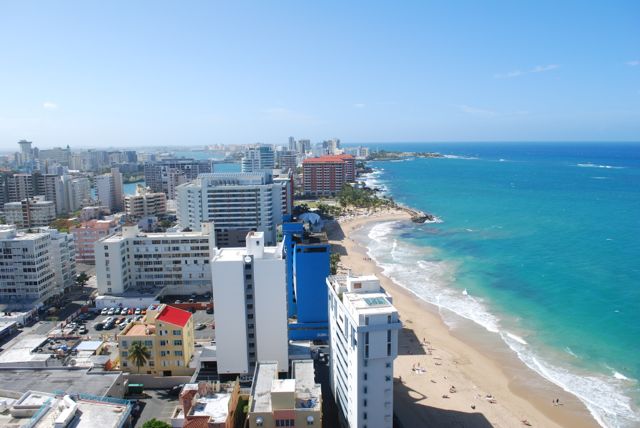I don’t usually get much sympathy about “the challenges of a being a travel writer” when I’m reviewing resorts in Cancun or exploring the nightlife of South Korea, but it can be difficult to balance your obligations to brands sponsoring trips, while creating objective online content for travel readers.
As Brafton’s assistant section editor for travel, education and lifestyle clients, and an experienced travel writer, I’ve had the chance to venture around the world with the mission of producing engaging content for diverse audiences. With this privilege comes responsibility to readers and the brands sponsoring your trips.
Writing a travel piece can often feel like you’re engaged in a never-ending battle between safeguarding your professional relationships and writing honest and engaging web content.
Here are a few ways you can ensure your online travel content is unbiased and relevant to your readers:
Consider your readers, not the perks
First, it’s crucial to do your homework before you agree to write about anything. When travel magazine editors are asked to review a certain hotel or write about a specific destination, they don’t immediately accept the assignment. They perform extensive research first to decide whether it would be something that would interest their audience and align with the magazine’s message. If it doesn’t, that assignment is typically tossed, even if it would have involved a free trip and a new relationship with that hotel or tourism board.

When I was assigned to review a hotel in Puerto Rico, I began by spending hours (yes, hours) on its website, researching everything from how many rooms it has to whether any recent upgrades have been made. From there, I read other travel writers’ reviews and studied the area extensively to learn about nearby attractions and restaurants. This gave me a good idea of what I was getting into, and also confirmed that it was a hotel my readers would consider when visiting Puerto Rico.
I advise my clients to maintain the same editorial standards in their content marketing efforts. If writing about a certain hotel or destination would not tie in with the travel brand’s image and goals, it should be avoided.
If your target audience is American travelers with a household income of about $65,000, it wouldn’t make sense to write about five-star resorts. No matter what type of deal you can strike with these hotels, they are not destinations your audience would typically consider when booking vacations and therefore, you risk losing their interest with this type of story.
Think like your audience
When you go on assignment, you need to describe the hotel or destination, its features and what makes it interesting or unique. But more importantly, you need to shape your observations to reflect your target audience’s concerns and priorities.
Put yourself in a business traveler’s shoes. Professionals will probably care about things like desk space, ample outlets, spacious conference rooms and distance from the airport.

Family travelers, on the other hand, will be much more concerned about the size of the room, daycare options, safety and kid-friendly meals. Perhaps these are not factors you would normally consider when visiting a hotel, but if you want to reach your target audience, it’s crucial for you to discuss the elements that are important to them.
Gain a fresh perspective
When I first started travel writing, one of my biggest challenges was finding the right angle. My first trip as a freelancer was to Yorkshire, England, where I was checking out some local spas and reviewing luxury hotels. I was not accustomed to staying in two-bedroom suites in five-star accommodations, so naturally, everything about the experience seemed enchanting.
The only problem was that I was writing for an audience that expected over-the-top accommodations. I had to force myself take a step back and view each experience like a luxury traveler. Of course, it took research to know what luxury travelers look for in a hotel, but I eventually started seeing them like my audience.
Don’t push the promotional angle
When writing about a certain destination, you might be tempted to promote it heavily. After all, you’ve ensured the subject would interest your audience, so what’s the harm in giving it a glowing review, especially if you really enjoyed your stay?
The problem is that your readers are smart enough to recognize promotional copy. If they come to your site to read honest and informative travel articles and stumble upon blatantly biased content marketing, the chances they stay are slim.
Of course, that does not mean you cannot give positive reviews, if that is truly your opinion. Just keep in mind that there’s a fine line between an article that reads like a press release for a resort and a glowing review of a hotel you truly enjoyed. Trust me – the former might make your business contacts happy, but it definitely won’t please your readers.
When things are bad, find a silver lining
On the other hand, you might end up writing about a resort or destination that you didn’t like – or more importantly – one you don’t think your target audience would enjoy. First of all, remember that’s OK! There are countless accommodations around the world, and some are simply not as great as they seem.

If you think it would be detrimental to your professional connections to write a negative review, it’s best to be honest with readers about the important things you didn’t like about your experience and balance it with a few things you did like.
For example, an audience of business travelers would probably want to know if the hotel room had no desk, but you can balance the article by saying it offered late check-outs or an efficient concierge service. In doing so, you can give the resort a decent review, while also telling your readers what they need to know.
I have never had a business associate complain about this type of balanced review. After all, any good sponsor understands that it’s your job to write honest content. As long as you’re not being unfair in your reviews of resorts and destinations, they are usually just happy to get some coverage.
Strike the right balance to keep both parties happy
At the end of the day, writing objective travel articles involves a little creativity and a lot of good decision-making. However, when you find the proper balance between the interests of your readers and the demands of your professional contacts, it is possible to create online content that achieves the ideal balance.



